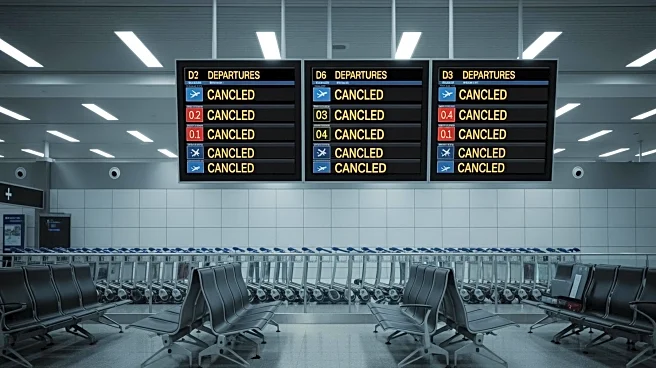What's Happening?
Logan Airport in Boston is experiencing significant disruptions as the FAA implements budget cuts, resulting in the cancellation of 38 flights. The cuts are part of a broader effort to reduce expenses, impacting air travel across the country. Passengers
at Logan Airport are facing delays and cancellations, causing frustration and inconvenience. The situation highlights the challenges faced by the aviation industry in balancing budget constraints with service delivery, as airports and airlines work to manage the impact on travelers.
Why It's Important?
The FAA's budget cuts have immediate implications for the aviation industry, affecting flight schedules and passenger experiences. These disruptions may lead to financial losses for airlines and airports, as well as decreased consumer confidence in air travel. The situation underscores the need for strategic planning and investment in infrastructure to ensure reliable service. It also raises questions about the long-term sustainability of current funding models for aviation, prompting discussions about potential reforms.
What's Next?
As the FAA continues to implement budget cuts, further disruptions may occur, prompting airlines and airports to seek alternative solutions to minimize impact. Stakeholders may advocate for increased funding or policy changes to address the challenges faced by the industry. The situation may also lead to increased scrutiny of the FAA's decision-making processes, with potential calls for transparency and accountability.
Beyond the Headlines
The budget cuts highlight broader issues related to government funding and resource allocation, raising ethical questions about the prioritization of services and the impact on public welfare. The situation may prompt discussions about the role of government in supporting critical infrastructure and the balance between fiscal responsibility and service delivery.
















